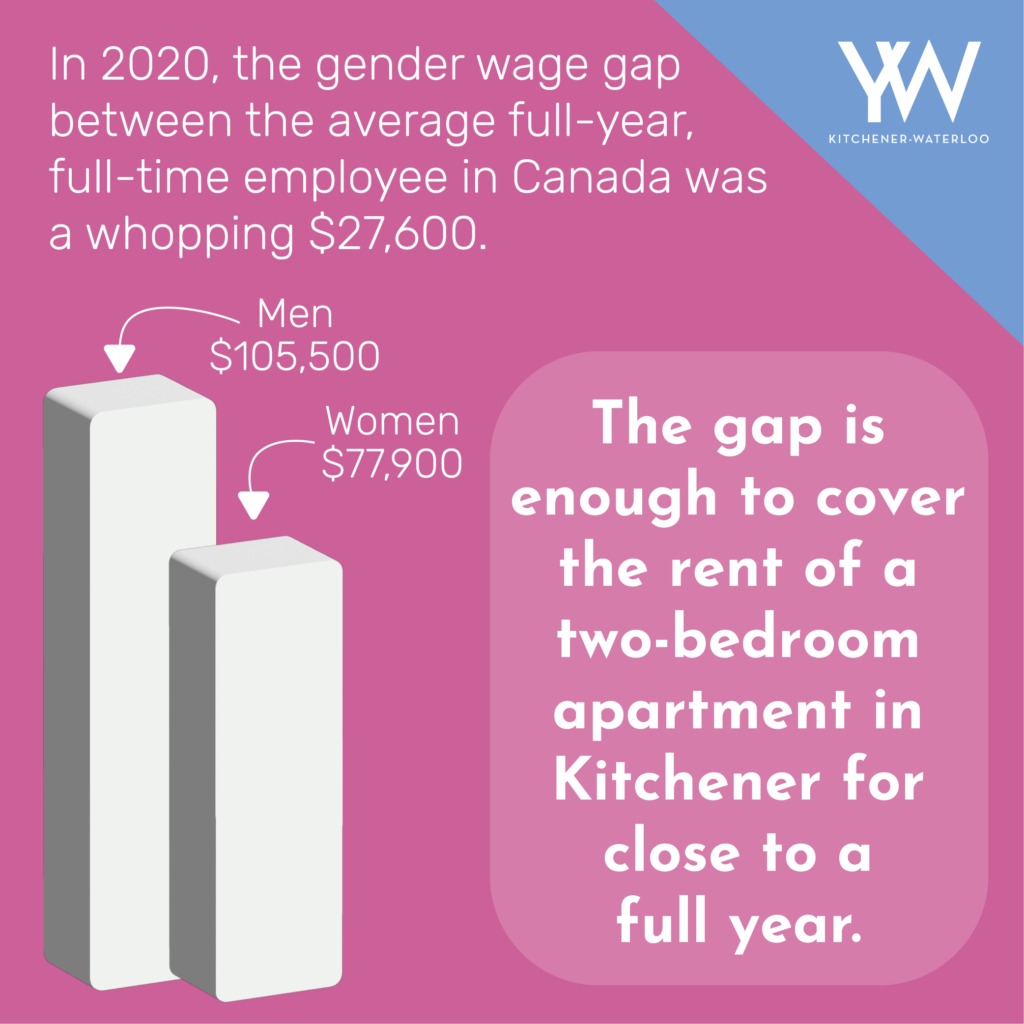by Kyra Jansen
FEMINISM IN THE LABOUR MOVEMENT – LABOUR DAY REFLECTIONS
“I believe the alliance between the women’s movement and the labour movement is the most powerful force for social change we have ever seen in history.”
Judy Rebick, President of the National Action Committee on the Status of Women 1990 (read: 33 years ago)
Feminism has shaped Canada’s Labour Movement since its inception, playing an indelible part in Canada’s understanding of Labour Rights. Thanks to feminist activists within the Labour Movement, unions have championed issues like sexual harassment, maternity/parental leave, reproductive rights, affirmative action, childcare and equal pay.
Labour Day marks a day to reflect on the triumphs of the Canadian Labour movement, but it also marks a day to reflect on how far we, as a society (that is 50.9% women), still have to go.
GENDER INEQUITIES IN LABOUR
In Ontario, women continue to face an average pay gap of 32% – but for many women the gap is much larger. Racialized women face a gap of 40%, Indigenous women 45%, immigrant women 55%, and women with disabilities 56%. In 2020, the average income for men in Canada working full-time was $105,500. For women, it was $77,900 – a difference of $27,600.
In current day rent speak – that gap is enough to cover the rent of the average two-bedroom apartment ($2,332 in Kitchener) for close to a full year.
The 2014 report, The Best and Worst Places to be a Woman in Canada, highlighted Kitchener-Waterloo and Cambridge as having one of the largest gender wage gaps of the top 20 metropolitan areas in Canada. And things have not changed.

The wage gap speaks to the pervasive, implicit belief that not only work traditionally associated with women, but also any work done by women, is in some way less valuable.
The unpaid care work that is expected of, and largely completed by women and gender diverse people is all-too-often minimized. We watch as work, estimated to be valued between 516.2 billion and 860.2 billion (in 2019), is dismissed as ‘not real work’.
Statistics pre-dating the COVID-19 pandemic, indicated the proportion of women inactive in the workforce due to personal or family responsibility, like caring for children, was 3.1 times higher than the proportion of men. When factoring in the pandemic’s destabilizing impact on women in the workforce, there is good reason to believe the inequity is much greater now.
But it isn’t just about putting the kids in daycare and going to work – labour devaluation continues as we consistently see lower wages for professionals from Early Childhood Educators to Personal Support Workers, to nurses. This devaluation is reflected in funding frameworks, extending its impacts to non-profits, even as they attempt to counter-act them. And when women and gender diverse people seek to close this gap by entering roles dominated by men, a new problem appears. As women and gender diverse people begin to increase the proportion of jobs they hold in an occupation, both the prestige and wages associated with that occupation diminish.
FINDING SOLUTIONS
The solution to these challenges requires changing the perception that work done by women is less valuable in addition to creating tangible supports for women and gender diverse people to overcome barriers to full participation in the labour force. How can you help?
Challenge Labour Perceptions
When you hear a friend dismiss care work, or a co-worker say that homemaking is ‘not real work’, speak up. Although none of us are individually responsible for these pervasive perceptions, we are all individually responsible for correcting them.
Advocate for Feminist Labour Issues in Your Union
Unions have been a massive force for change in regards to the labour of women and gender diverse people. If you are a unionized employee, make your voice heard. Ensure your union knows that feminist labour issues, like the wage gap and childcare, are priorities for you.
Support Organizations like YWKW
In addition to advocacy work, YW Kitchener-Waterloo provides tangible supports. We provide women and gender diverse people with holistic employment support with an intersectional lens – addressing not only obvious barriers to work like language barriers, experience, or resume writing skills – but also subtle barriers, like confidence, food security, and network building. We operate quality and affordable childcare centers – empowering women and gender diverse people, who are still too often the default caregivers in our society, to pursue full time employment and other economic opportunities.
Join us in the work to build equity for women, including labour equity, by amplifying our message or making a donation.



